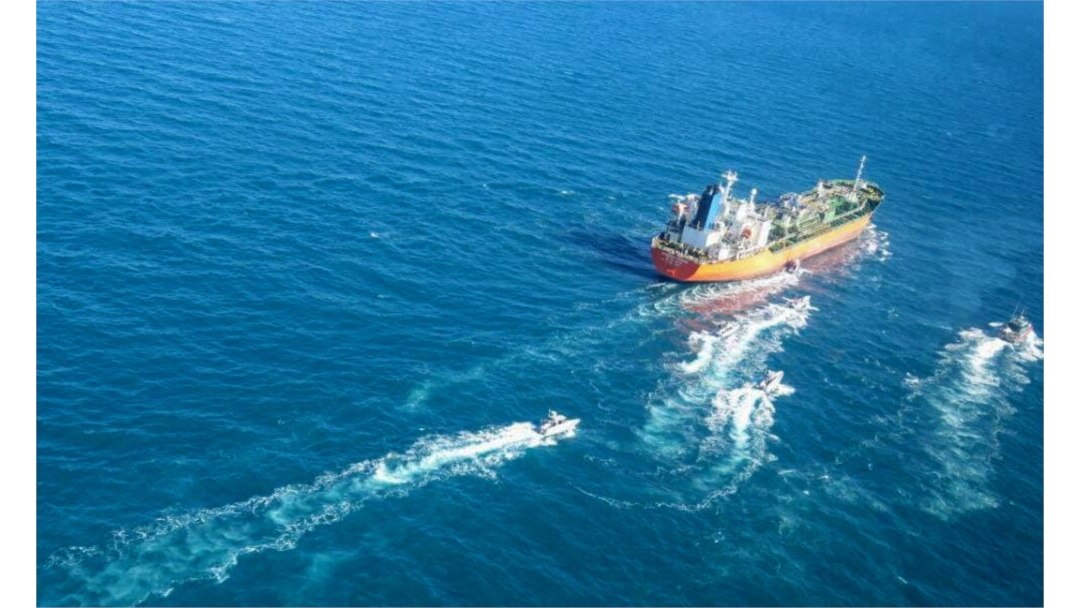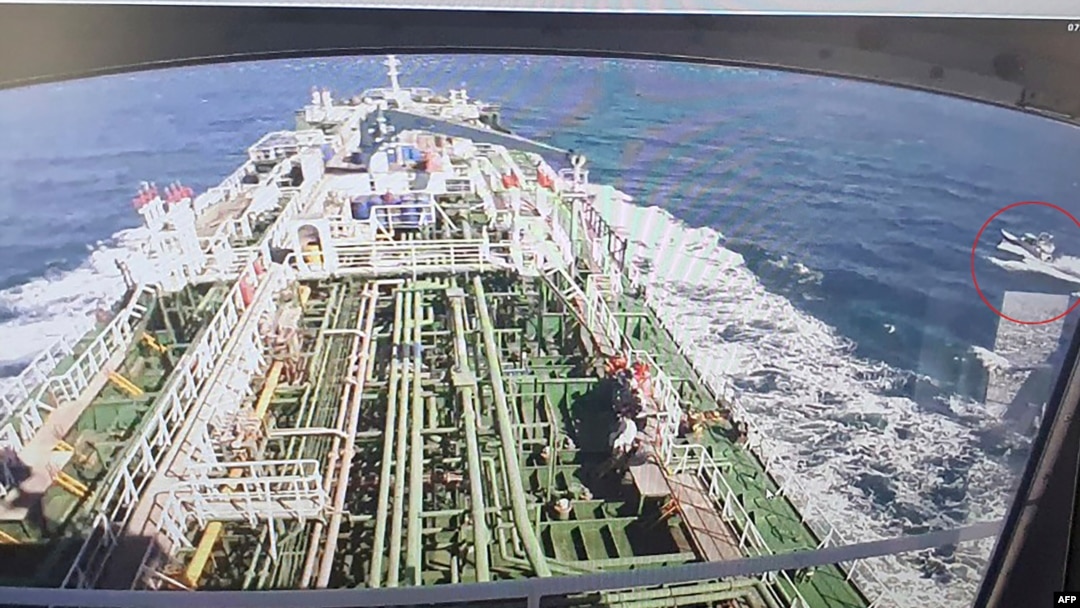South Korea says it will seek a diplomatic solution with Iran over a South Korean-flagged oil tanker seized by Iranian Revolutionary Guard troops Monday in the Strait of Hormuz.
South Korea’s Yonhap news agency says it learned from an unnamed Foreign Ministry official that Koh Kyung-sok, the head of the Foreign Ministry’s African and Middle Eastern affairs unit, met with Iranian Ambassador Saeed Badamchi Shabestari Tuesday in Seoul to discuss the matter.

A picture obtained by AFP from the Iranian news agency Tasnim on Jan. 4, 2021, shows the South Korean-flagged tanker being escorted by Iran's Revolutionary Guards navy after being seized in the Gulf.
The Foreign Ministry says a diplomatic team will head to Iran to negotiate the release of the MT Hankuk Chemi and its 20-member crew, including five South Koreans, 11 Myanmar nationals, two Indonesians and two Vietnamese.
Meanwhile, the Defense Ministry is deploying its 300-member strong anti-piracy unit to the region aboard the 4,400-ton class destroyer Choi Young.
The Iranian military has said the MT Hankuk Chemi was seized as it traveled from Saudi Arabia to the United Arab Emirates due to possible environmental violations.
The tanker’s seizure comes as Tehran and Seoul are locked in negotiations to release $7 billion in Iranian assets frozen at South Korean banks since the United States tightened sanctions on Iran. Iran wants to use the money to purchase COVID-19 vaccines through the COVAX global vaccine procurement and distribution program.
Iran announced Monday that it has begun enriching uranium to 20%, its latest step away from a 2015 international agreement that limited its nuclear program in exchange for sanctions relief.
The Trump administration imposed the sanctions in 2018 after withdrawing from the six-nation agreement that limited Iran’s uranium enrichment to 3.67%.


